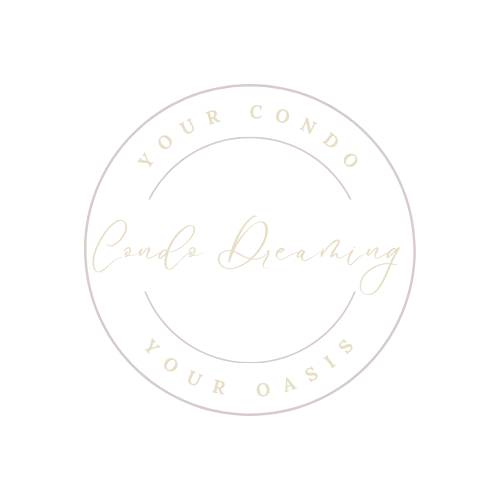Don’t let the fear of being a first-time condo buyer hold you back!
Embarking on purchasing your first condo is an exhilarating step towards independence and homeownership. It’s a decision that blends the excitement of a new beginning with the complexities of real estate investment. Shopping for a condo involves more than just picking out a desirable property; it’s about making a well-informed choice that aligns with your lifestyle, financial capabilities, and long-term goals.
This comprehensive guide is designed to navigate the key considerations of buying your first condo, ensuring your decision is as rewarding as exciting.
10 Things to consider when investing in your first condo

1. Budget and financing
- Understanding Your Budget: Establishing a realistic budget is the first step in your condo-buying journey. This means closely examining your finances, including your income, savings, debts, and monthly expenses. A realistic budget will determine the price range of condos you can afford and help you plan for future expenses associated with condo ownership.
- Financing Options: For most first-time buyers, purchasing a condo involves obtaining a mortgage. It’s important to research different mortgage options and lenders to find a rate and payment plan that suits your financial situation. Consider fixed-rate mortgages for stability in your monthly payments or adjustable-rate mortgages if you anticipate a future increase in income.
- Mortgage Pre-Approval: Getting pre-approved for a mortgage before you start looking at properties is a wise move. Pre-approval gives you a clear idea of how much a lender is willing to finance and demonstrates to sellers that you are a serious and qualified buyer.
- Hidden Costs to Consider: Additional costs exist beyond the purchase price and mortgage payments. These include closing costs, property taxes, homeowner’s insurance, and condo association fees (COA). These fees can add up, so factoring them into your budget is crucial.
2. Location
- The Impact of Location: Location is critical in real estate, especially for condos. The right location can significantly affect your quality of life and the future value of your investment. Consider the proximity to your workplace, ease of access to public transportation, and the availability of essential amenities like grocery stores, restaurants, and parks.
- Neighborhood Dynamics: Each neighborhood has its unique character and vibe. Some may offer a bustling urban atmosphere, while others provide a quieter, suburban feel. Think about your preferred lifestyle and whether the neighborhood aligns with your personal and social needs.
- Safety and Community: Research the safety of the area. Look into local crime statistics and talk to potential neighbors or local businesses to get a sense of the community. A safe and welcoming community ensures peace of mind and can positively impact the property’s value.
3. Condo size and layout
- Space Requirements: Consider how much space you need based on your lifestyle, belongings, and plans. While a larger condo offers more space, it also has a higher price tag and potentially more maintenance.
- Efficiency of Layout: The layout of a condo can greatly influence its livability. An open floor plan might offer a more spacious feel, whereas a condo with well-defined spaces might provide better privacy. Consider how the layout fits with your furniture and daily routines.
- Balancing Size with Budget: It’s important to balance your desire for space with your budget constraints. A smaller, well-designed condo can often be a smarter purchase than a larger, less functional space. Consider your long-term needs and how they align with your current financial situation.
4. COA fees and regulations
- Understanding COA Fees: Condo Owners Association (COA) fees are crucial to condo living. These fees typically cover the maintenance of common areas, building insurance, and sometimes utilities like water and trash removal. It’s important to not only know the amount of the COA fees but also to understand what they cover and how often they are subject to increase.
- COA Rules and Regulations: Every condo community has rules and regulations, ranging from pet policies to design modifications in your unit. Before committing to a condo, review these rules to ensure they align with your lifestyle. Violating these regulations can result in fines or other penalties.
- Impact on Living Experience: The dynamics of the HOA can significantly impact your living experience. A well-managed COA can enhance the community’s quality of life. Conversely, a poorly managed one can lead to frustrations and financial difficulties if the association does not adequately fund maintenance and reserves.
5. Amenities and facilities
- Evaluating Available Amenities: Condos often come with attractive amenities such as fitness centers, pools, communal gardens, and security services. Evaluate these amenities in terms of their condition, your likely usage, and how they contribute to the COA fees. Remember, more amenities can mean higher COA fees.
- Maintenance and Quality: The maintenance and quality of these facilities reflect the condo community’s overall health. Well-maintained amenities are not only enjoyable but also indicative of effective COA management.
- Lifestyle Alignment: Consider how these amenities align with your lifestyle. For instance, a swimming pool and playground are great for families, while a well-equipped gym or quiet study rooms might appeal more to young professionals or students.

6. Building age and condition
- New vs. Older Buildings: The age of the condo building is a crucial factor to consider. Newer buildings may offer modern amenities and fewer immediate repair needs, but they might come with higher prices and less established COA funds. Older buildings can have character and potentially lower prices, but they may require more maintenance and have outdated systems.
- Maintenance History: Investigate the maintenance history of the building. A well-maintained older building can be a great find. Look for signs of regular upkeep, recent improvements, and planned upgrades. This information can usually be obtained from the COA or management company.
- Importance of a Professional Inspection: A professional inspection is vital regardless of the building’s age. An inspector can identify potential problems like plumbing issues, electrical system conditions, and the state of the roof and windows, which can impact your decision and potential future costs.
7. Resale value and future considerations
- Factors Affecting Resale Value: Consider factors that might affect the condo’s resale value, such as location, building amenities, unit upgrades, and the overall real estate market trends. A condo in a desirable area with good schools and convenient amenities is more likely to appreciate over time.
- Thinking Ahead: Your needs may change, so consider how the condo fits your plans. For example, a one-bedroom condo might be perfect now but may not suit you if you plan to start a family. In that case, you should shop for more bedrooms like house hunting.
- Investment Potential: Evaluate the condo not just as a home but also as an investment. Consider rental demand in the area if you plan to rent it out. Research local market trends to gauge potential investment returns.
8. Noise and privacy
- Condo Acoustics and Privacy Levels: One of the realities of condo living is the proximity to neighbors, which can affect noise levels and privacy. Before purchasing, consider the construction quality regarding soundproofing. Check the thickness of walls, floors, doors, and ceilings. Some newer buildings have better acoustic planning to reduce noise transmission.
- Checking Noise Levels: When viewing potential condos, visit at different times of the day to gauge the typical noise levels. Pay attention to external noise factors like traffic, nearby businesses, or schools, as well as internal factors like elevators, communal areas, and neighboring units.
- Privacy Considerations: Consider the layout and positioning of the condo for privacy. Corner units may offer more privacy, while units near common areas like the pool or gym might have higher foot traffic. Balconies and windows’ placement can also impact your privacy.
9. Community and neighbors
- Importance of Community: The community in a condo complex can significantly impact your living experience. A friendly, active community can enhance your quality of life, providing social interaction and a sense of belonging.
- Getting to Know Potential Neighbors: Try to meet potential neighbors and ask about their experiences living in the community. This can give you insights into the community dynamics, neighbor relations, and potential issues or positives.
- Community Vibe: Assess the overall vibe of the community. Is it family-friendly, geared towards young professionals, or more suitable for retirees? Ensure that the community’s general atmosphere aligns with your lifestyle and preferences.
10. Legal considerations and documentation
- Navigating Legal Paperwork: Buying a condo involves substantial legal paperwork. This includes contracts, disclosures, and condo association documents. Reviewing these documents carefully and, if necessary, seeking legal counsel to ensure you understand your rights and obligations is crucial.
- Role of a Real Estate Attorney: Having a real estate attorney is advisable, especially when dealing with legal documents. They can help you navigate the complex paperwork, ensure the transaction complies with local laws, and protect your interests.
- Condo Declarations: Pay particular attention to the condo’s declarations and bylaws. These documents outline the community’s rules and regulations, covering pet policies, maintenance responsibilities, and dispute resolution procedures.
- Understanding Your Responsibilities: The legal documentation will outline your responsibilities as a condo owner, including the payment of COA fees, adherence to rules, and participation in condo association meetings. Make sure you are comfortable with these responsibilities before finalizing the purchase.

Buying a first condo should be fun – know what to expect and enjoy the process
Armed with this knowledge, you are well-prepared to embark on your condo-buying journey confidently. Take your time, ask questions, and seek professional guidance when needed. Remember that buying your first condo is not just a transaction; it’s an investment in your future and a place to create cherished memories.
We encourage you to explore your options, visit different properties, and envision the condo that best suits your lifestyle and aspirations. Each step brings you closer to the rewarding experience of condo living, where you can make your new space your own.
Congratulations on taking this exciting step towards homeownership. We wish you the best in finding your ideal condo and creating a comfortable, fulfilling, and prosperous future in your new home.


